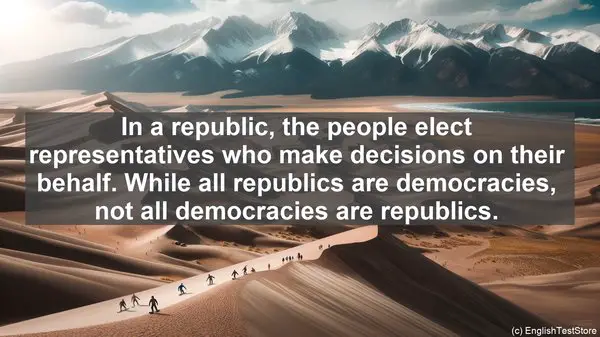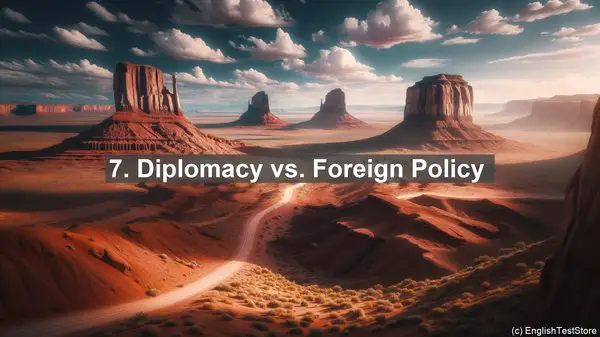Introduction
Welcome to today’s lesson on geopolitics. In this lesson, we’ll be discussing the top 10 commonly confused words in this fascinating field. Understanding these terms is crucial for comprehending global affairs. So, let’s dive in!
1. Nation vs. State
The terms ‘nation’ and ‘state’ are often used interchangeably, but they have distinct meanings. A nation refers to a group of people who share a common culture, language, or history. On the other hand, a state is a political entity with defined borders and a governing authority. While a nation-state is a combination of both, not all nations have their own states, and not all states are homogenous nations.
2. Power vs. Influence
Power and influence are related but differ in their nature. Power is the ability to make others do something, often through coercion or force. Influence, on the other hand, is the capacity to shape opinions, decisions, or actions without direct control. While power can be temporary or situational, influence is often built over time and can have long-lasting effects.

3. Globalization vs. Localization
Globalization refers to the increasing interconnectedness of the world, where ideas, goods, and people flow across borders. It often leads to a homogenization of cultures and economies. Localization, on the other hand, emphasizes local identity, traditions, and self-sufficiency. While globalization can bring economic benefits, localization aims to preserve diversity and protect local industries.

4. Democracy vs. Republic
Both democracy and republic are forms of government, but they have different structures. In a democracy, decisions are made directly by the people through voting. In a republic, the people elect representatives who make decisions on their behalf. While all republics are democracies, not all democracies are republics. For example, a direct democracy is not a republic.
5. Colonialism vs. Imperialism
Colonialism and imperialism are often used interchangeably, but they have distinct historical contexts. Colonialism refers to the establishment and maintenance of colonies by a foreign power. It often involves the exploitation of resources and the imposition of cultural norms. Imperialism, on the other hand, is the broader concept of extending a nation’s power and influence over other territories, which can include non-colonial methods like economic dominance.
6. Terrorism vs. Insurgency
Terrorism and insurgency are both forms of political violence, but they differ in their objectives and methods. Terrorism aims to create fear and panic among the general population, often through indiscriminate attacks. Insurgency, on the other hand, is a broader term that refers to an armed rebellion against a government or occupying force. While all terrorists can be considered insurgents, not all insurgents resort to terrorism.
7. Diplomacy vs. Foreign Policy
Diplomacy and foreign policy are closely related but have different scopes. Diplomacy refers to the practice of conducting negotiations and maintaining relations between countries. It often involves diplomats and ambassadors. Foreign policy, on the other hand, is the broader strategy and goals that a country pursues in its interactions with other nations. Diplomacy is one of the tools used to implement foreign policy.
8. Genocide vs. Ethnic Cleansing
Both genocide and ethnic cleansing involve the targeting of specific ethnic or religious groups, but they differ in their intent and scope. Genocide aims to completely eliminate a group, often through mass killings. Ethnic cleansing, while also involving forced displacement and violence, may not necessarily seek the complete annihilation of a group. Both are grave human rights violations.
9. Hegemony vs. Supremacy
Hegemony and supremacy both refer to dominance, but they have different connotations. Hegemony is the dominance of one group or state over others, often achieved through economic or cultural means. It can be seen as a form of leadership. Supremacy, on the other hand, implies the belief in the inherent superiority of one group over others, often based on race or ideology. It can be more exclusionary and oppressive.
10. Balance of Power vs. Collective Security
Both balance of power and collective security are strategies to maintain international stability, but they have different approaches. Balance of power relies on the distribution of power among states, where no single state becomes too dominant. Collective security, on the other hand, emphasizes cooperation and the collective response of multiple states to a threat. It aims to address the root causes of conflicts.
